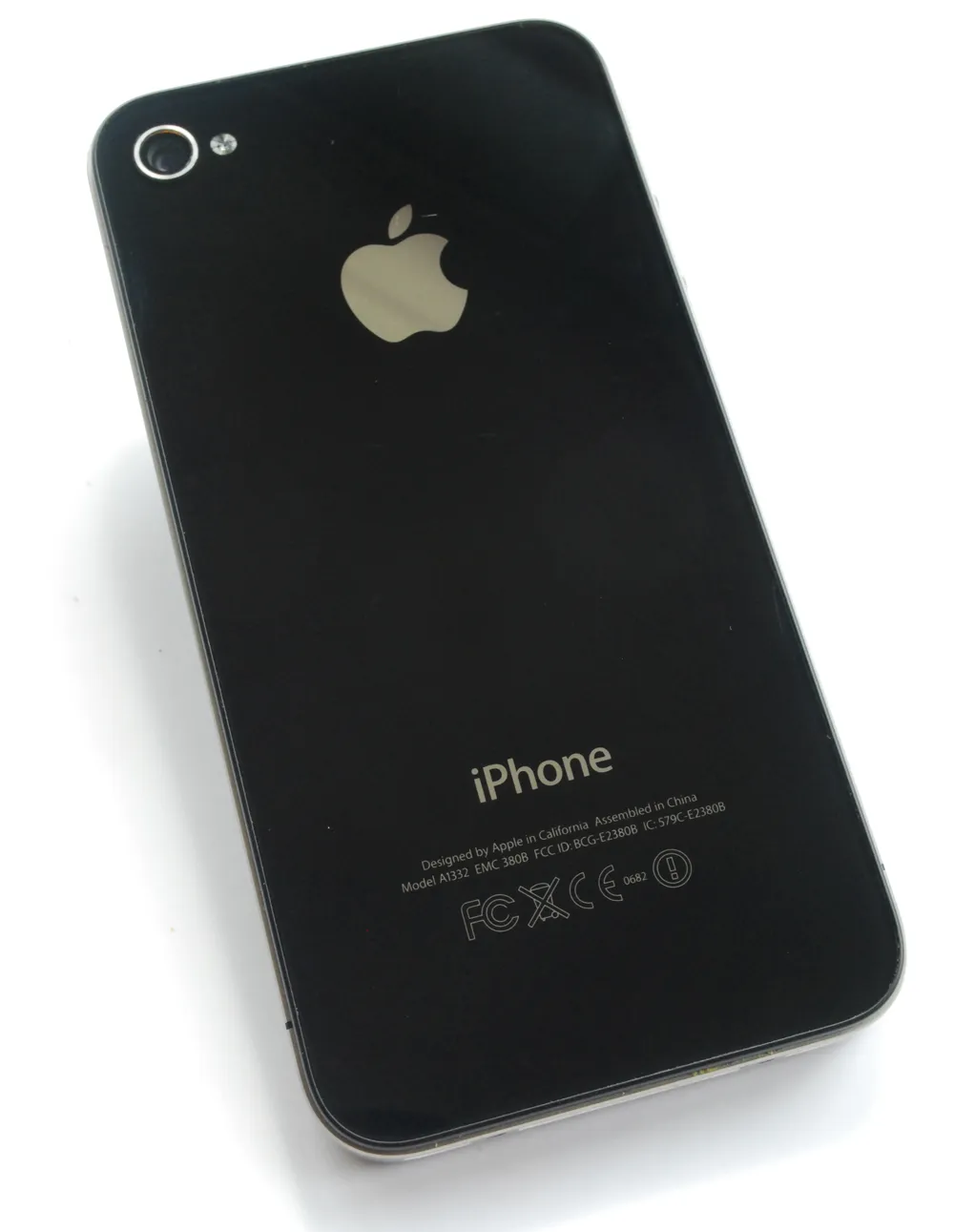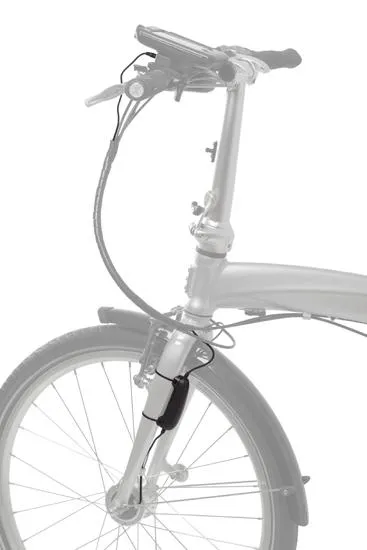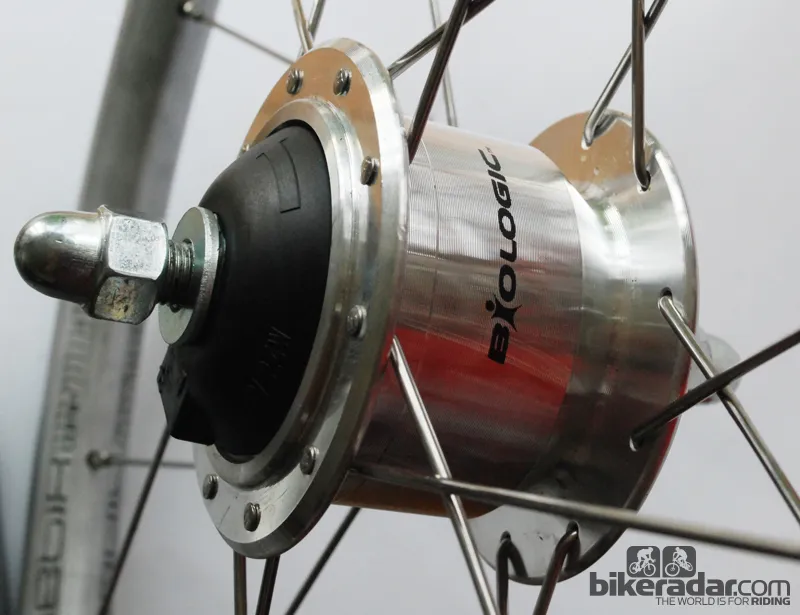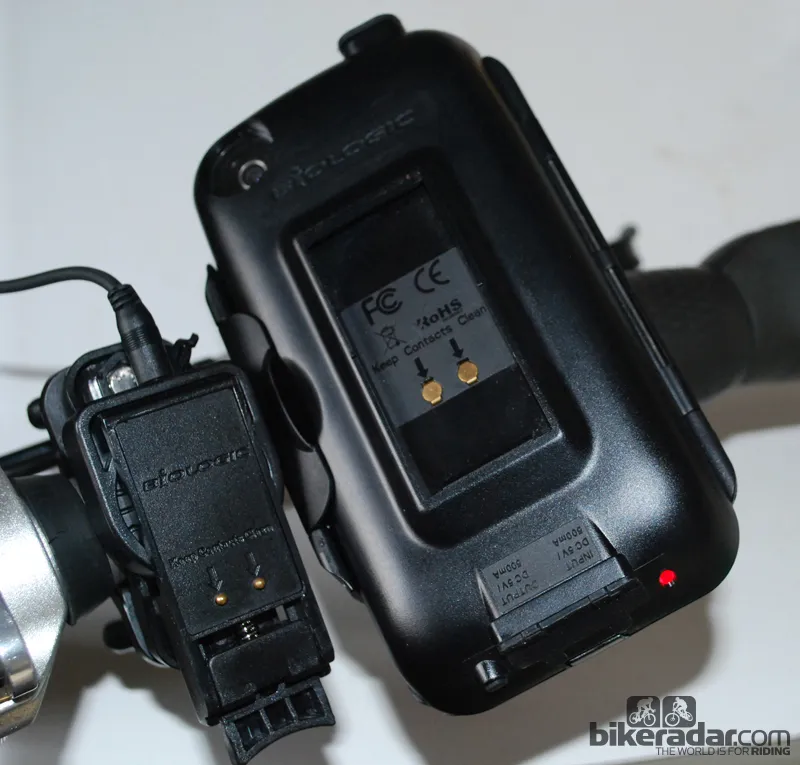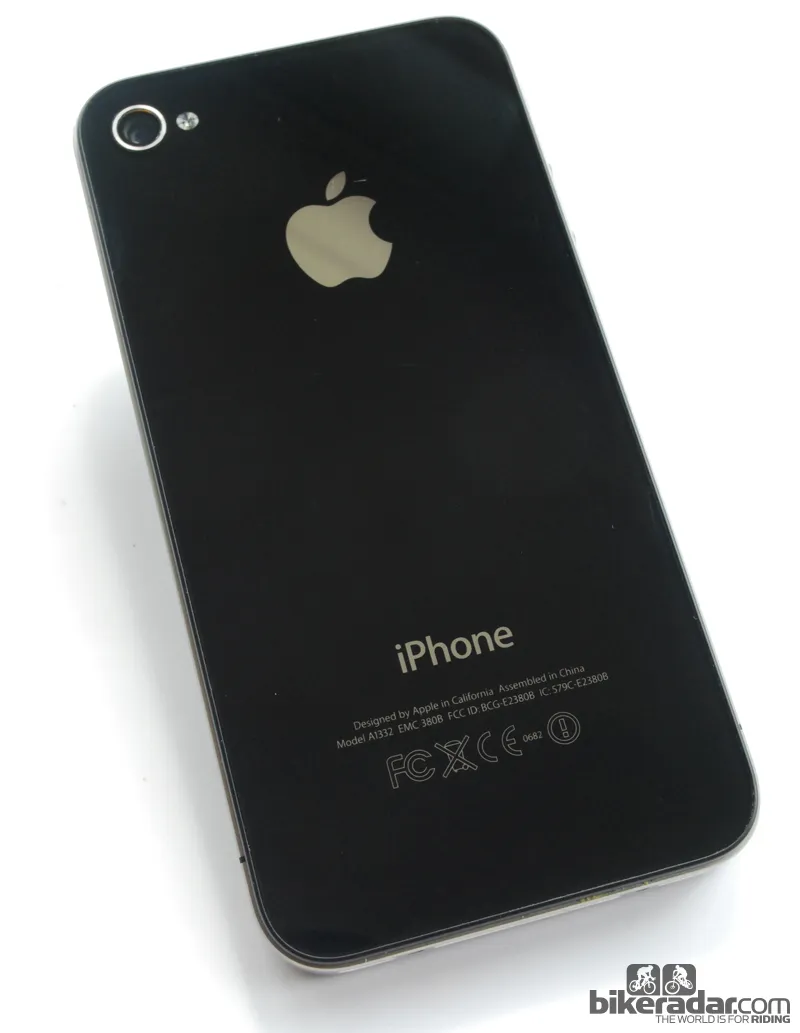While iPhone addicts have been on tenterhooks recently, eagerly awaiting the release of the iPhone 5, we've tested the iPhone 4 from a cyclist’s point of view.
Why? Because it has an immense reputation for performance and because there are numerous options for bike mounting (though iPhones are expensive, even in terms of smartphones, so you'd probably want to limit yourself to riding on smooth roads with a bar-mounted device).
The iPhone 4S has a faster processor than the basic 4, and voice command features. But it costs more and in terms of screen display and battery life – both critical for cyclists – it adds little. The real leap came with the move from 3GS to 4.
Durability
The iPhone uses aluminosilicate glass both front and back, unlike its predecessors. Apple have hinted heavily that this is the same Gorilla Glass material used on the Motorola Defy. Around 20 percent of the world's handsets now use a variant of this type of glass, reportedly.
While it clearly does a good overall job, our test sample had already acquired one or two small scratches by the end of its trial period. For that reason, use of a protective case is advisable, especially as you'll be out on a bike and the iPhone makes no claims to water resistance. Independent tests show that if you drop an iPhone onto concrete enough times, it will shatter.
Screen
The iPhone 4 offers a fantastic display – crisp and bright so that mapping shows up even in bright, direct sunlight. The touch responsiveness is excellent too; just what's needed if you're out riding with cold fingers.
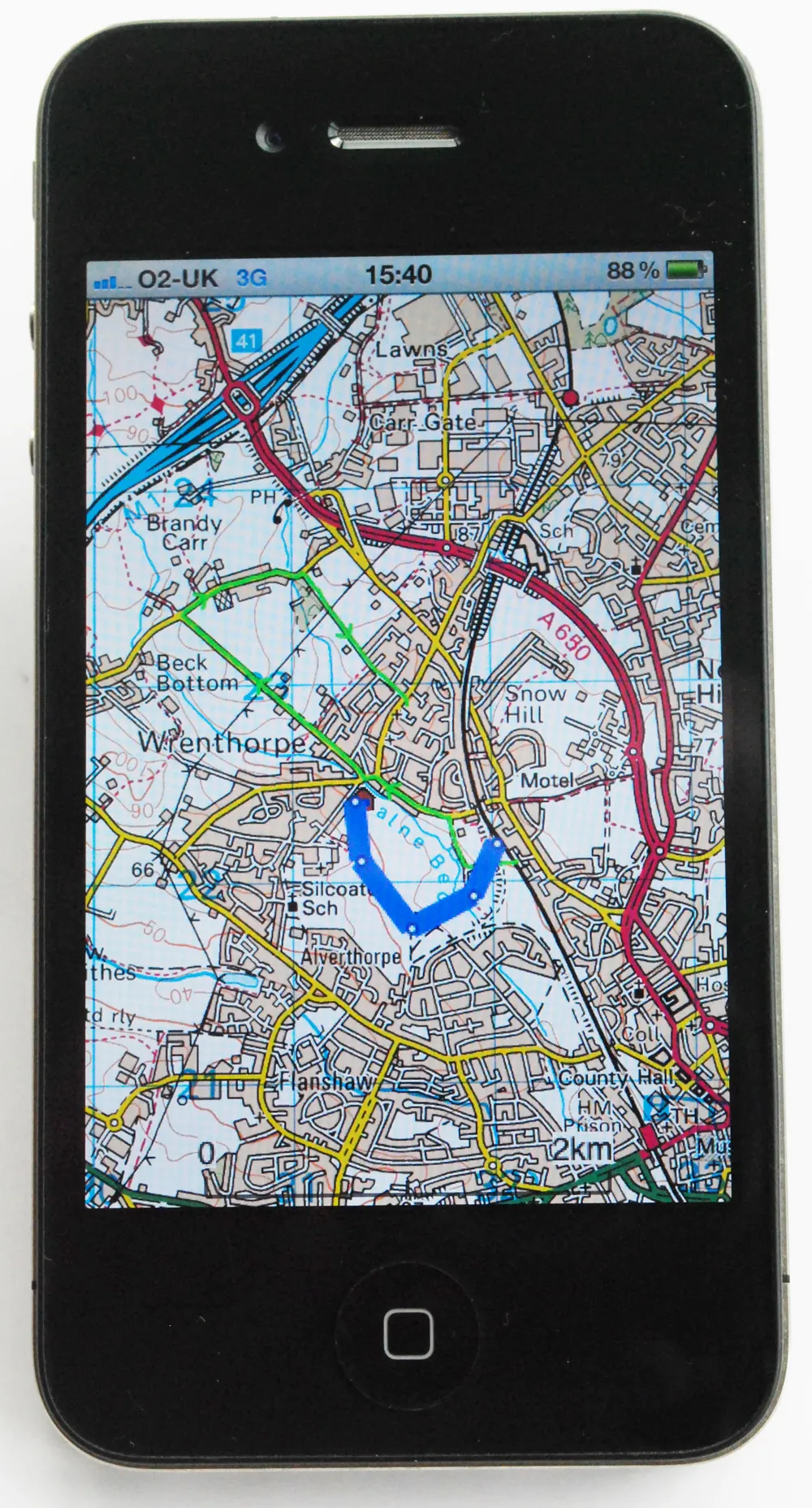
The iPhone 4's crisp display is ideal for complex mapping
GPS performance
The iPhone 4's GPS system was very quick to work, even indoors. Finding our way on a variety of maps was easy and we never lost signal.
Operating friendliness
The startup time, about 30 seconds, is acceptable. And we found it intuitive and easy to control just about everything from the sensitive touchscreen.
Battery life with GPS
To push the iPhone 4 to its limits we road with the Viewranger GPS app constantly on, tracking enabled, and got about five hours of use. That included several breaks where the phone was switched on and off again – during cafe breaks, for example.
This might be adequate for shorter leisure rides but isn’t really enough to rely on for a full day. Add in a couple of calls or emails and you'll be struggling. Of course, there are other ways to use GPS – you can switch it on to navigate at a particular location only, or to send out beacon-type signals to others, showing where you are. Either of these scenarios should ensure a much longer battery life.
The iPhone battery has one big pro – remaining life is always shown clearly as a percentage, unlike on many other phones where you have to guess what's left based on the colour of an icon.
But it also has a very big con – the battery isn't removable, meaning you can't take spares along with you. If it dies while you're touring in the back of beyond, the phone is out of use.
On-bike charging
To test on-bike charging we used BioLogic's ReeCharge iPhone Case with a dedicated, optional ReeCharge bracket. The phone is still fully functional when inside the waterproof casing.

The BioLogic ReeCharge Case is a charging device and protective shield in one
The ReeCharge has an integrated rechargeable 1400mAh lithium ion battery, so will roughly double the battery life of an iPhone 4 while you're out and about. It will also charge external devices with the appropriate cables.
The battery can be topped up via a mains connection or USB. Or, if you want to charge the case on the bike you can buy an optional ReeCharge Dynamo Kit. Unfortunately, you can't juice the battery and phone at the same time.
Charging the iPhone from the ReeCharge is as simple as pushing a button, and a full case took our phone from empty to full in about 1 hour 30 minutes – just as fast as charging from the mains, if not quicker.
The ReeCharge case is a boon for longer leisure rides and touring. Our only real criticism is that you might expect something that feels a lot sturdier for the money – you'll be parting with £88 / US$100 for the case, £18 / US$20 for the mounting bracket and £22 /US$30 for the dynamo regulator (dynamo not included).
Other features
- iCloud syncing means you can back up data online
- Bluetooth
- HD video recording
It should be noted that, while we've given the recommended retail prices for the iPhone 4, costs can vary hugely depending on online discounts and service provider contracts.

